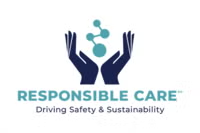March is Women’s History Month! It’s the annual declared month to study, observe and celebrate the vital role and essential contributions of women in American history. This year, the American Chemistry Council (ACC) recognizes and celebrates historic women chemists and their achievements.
To date, however, only 26% of workers within the business of chemistry have been women — that’s approximately 146,000 women. We can do more.
When the business of chemistry embraces diversity and inclusion, including women, from the boardroom to the plant, the industry becomes better. And as the industry becomes better, the world becomes better, as evidence of the historic women in chemistry that’ve come before us.
To Dr. White’s point: For the first time this year, ACC’s Board of Director and Executive Committee’s chairpersons are women. Karen McKee, President of ExxonMobil Product Solutions Company, leads the Board of Directors, and Erin Kane, President and CEO of AdvanSix leads the Executive Committee.
Now, let’s take a look at the women in chemistry that have paved the way and broken glass ceilings:
First Woman to Receive Nobel Prize in Chemistry
You cannot celebrate women in chemistry without mentioning Marie Curie, the first woman to receive a Nobel Prize (in both Chemistry and Physics). She was also the first person to receive a Nobel Prize twice and the only person to win a Nobel Prize in two scientific fields. Curie received the Nobel Prize in Chemistry in 1911 for the discovery of radium and polonium and the isolation of radium, which provided science with a method for isolating and purifying radioactive isotopes.
The Lady Behind the “Ball Method”
Alice Augusta Ball was born just 20 years after the inception of the Manufacturing Chemist Association in 1892. Ball was one of the first Black women to receive her master’s degree in chemistry, and she was the first woman chemistry professor at the University of Hawaii. Ball is most known for developing the “Ball Method” — the first successful treatment for leprosy, enabling thousands of outcasts to return to society.
Developing Diabetes Testing Method
Helen Free started college as an English and Latin major. She later switched her major to chemistry due to the vacancies in “male-dominated disciplines” after men enlisted in the army after the bombing of Pearl Harbor. Free is most known for developing a revolutionary and inexpensive method to test for diabetes and other illnesses. This invention, still used today, is a chemically coated dip-and-read stick that measures key indicators of disease by changing color when dipped in a urine sample.
Frozen Food Safety
Mary Engle Pennington earned her doctorate in chemistry from the University of Pennsylvania in 1895, just a few years after she was refused her bachelor’s degree because she was a woman. Pennington was sometimes referred to as “Ice Woman” due to the nature of her work at the U.S. Food and Drug Administration. She became the first woman lab chief leading the Bureau of Chemistry’s Food Research Lab. Pennington’s most notable discovery was that fresh foods that are consistently kept at a low temperature last longer, with lower levels of bacteria, than those that go through multiple temperature fluctuations.
The Making of Makeup
Hazel Bishop was a chemist who graduated from Barnard College in 1929. She worked as an organic chemist designing fuel for airplanes during World War II. During that time, she discovered the cause of deposits affecting superchargers of aircraft engines. Bishop founded her very own cosmetic company Hazel Bishop, Inc. where she invented long-lasting smear-proof lipstick. Bishop is also recognized as the first woman member of the Chemists’ Club in New York.
Creating Kevlar® and Finding Fibers
Stephanie Louise Kwolek was a Polish American chemist who graduated from Margaret Morrison Carnegie College in 1946. After college she began her career at our member company, DuPont, which spanned more than 40 years. At DuPont, Kwolek serendipitously created fibers strong enough to withstand steel bullets. Most notably, Kwolek is known for inventing Kevlar® — a heat resistant material that’s stronger than steel and lighter than fiberglass. Kevlar® is still used today to protect and save lives, including in products like bulletproof vests, helmets, and more.
The Next Generation of Women Reshaping Plastics
Making sustainable change comes from discovering your purpose and passion. Hear from trailblazing women on the latest episode of the Sustainably Speaking podcast on how they found their north star working on plastics sustainability and are now helping shape a brighter future. Purpose-driven work is one of the reasons employees look for careers in sustainability — but finding that initial spark can be difficult. This episode explores the dynamic perspectives of women working on plastics sustainability and the experiences that ignited their passion for STEM education — all driving innovative solutions at their places of work.


